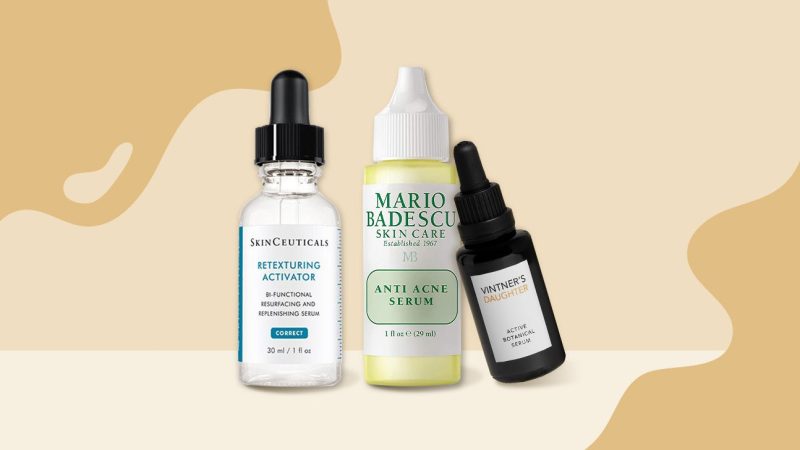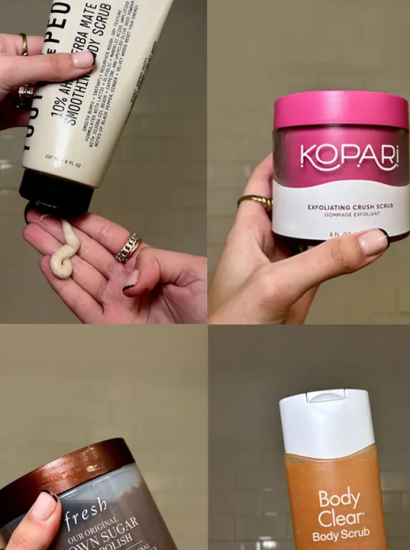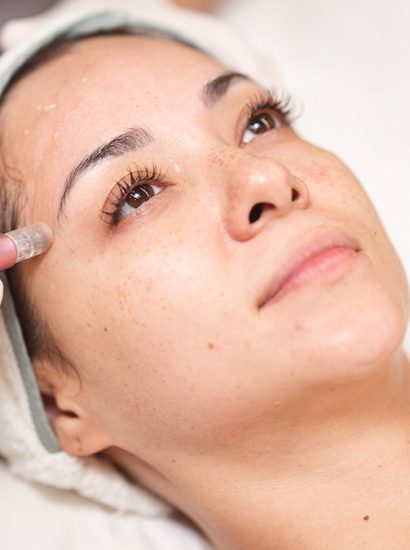If you have acne-prone skin, the idea of applying face oil might sound scary. Many people believe that oils clog pores and cause breakouts, but that’s far from the truth! The right face oils can actually help regulate sebum production, soothe inflammation, and nourish your skin without making acne worse.
Not all oils are created equal, though. You need lightweight, non-comedogenic oils that hydrate without clogging pores. In this guide, we’ll explore the 10 best face oils for acne-prone skin that can help you achieve a clear, healthy, and glowing complexion naturally.
Jojoba Oil – The Ultimate Balancing Oil
Jojoba oil is one of the best face oils for acne-prone skin because it closely mimics the skin’s natural sebum. It helps regulate oil production, preventing your skin from producing excess oil that leads to breakouts.
- Why It Works: Anti-inflammatory, lightweight, non-comedogenic
- Best For: Oily and combination skin
- How to Use: Apply 2-3 drops to clean skin after moisturizing
Rosehip Oil – Fades Acne Scars & Brightens Skin
Rosehip oil is packed with vitamins A and C, which promote skin regeneration and help fade acne scars. It’s also a lightweight, dry oil, meaning it absorbs quickly without leaving a greasy residue.
- Why It Works: Rich in antioxidants, reduces hyperpigmentation
- Best For: Sensitive and acne-scarred skin
- How to Use: Apply before bed for overnight hydration and skin repair
Tea Tree Oil – Natural Acne Fighter
Tea tree oil is a powerful antibacterial that targets acne-causing bacteria. It reduces redness and inflammation, making it ideal for those struggling with frequent breakouts.
- Why It Works: Antibacterial, anti-inflammatory
- Best For: Active acne breakouts
- How to Use: Mix a few drops with a carrier oil (like jojoba) and apply to problem areas
Warning: Never apply tea tree oil directly to the skin without diluting it, as it can cause irritation.
Squalane Oil – Lightweight & Hydrating
Squalane oil is a game-changer for acne-prone skin. Unlike heavy oils, it’s ultra-lightweight, non-greasy, and non-comedogenic. It provides deep hydration without clogging pores, making it a perfect choice for all skin types.
- Why It Works: Fast-absorbing, doesn’t clog pores
- Best For: All skin types, including oily and sensitive skin
- How to Use: Apply a few drops after your moisturizer for a dewy glow
Argan Oil – The Moisture Locking Oil
Argan oil is rich in vitamin E and essential fatty acids, which help calm inflammation and repair the skin barrier. It’s perfect for those with acne-prone skin who still need moisture without heaviness.
- Why It Works: Anti-inflammatory, lightweight
- Best For: Dry and acne-prone skin
- How to Use: Massage a few drops onto damp skin for best absorption
Hemp Seed Oil – Reduces Redness & Soothes Skin
Hemp seed oil is a highly nutritious oil loaded with omega-3 and omega-6 fatty acids. It reduces inflammation, calms redness, and helps regulate oil production.
- Why It Works: Anti-inflammatory, non-comedogenic
- Best For: Red, irritated, and acne-prone skin
- How to Use: Use as a facial oil or mix a few drops into your moisturizer
Grapeseed Oil – Lightweight & Antioxidant-Rich
Grapeseed oil is a fast-absorbing, lightweight oil that is rich in antioxidants like vitamin E. It helps tighten the skin, fight bacteria, and control oil production, making it perfect for acne-prone skin.
- Why It Works: Antimicrobial, fast-absorbing
- Best For: Oily and acne-prone skin
- How to Use: Apply a few drops to your skin after cleansing
Tamanu Oil – Heals Acne Scars & Dark Spots
Tamanu oil is known for its wound-healing and scar-fading properties. It’s a powerful anti-inflammatory oil that can help heal acne, reduce pigmentation, and even out skin tone.
- Why It Works: Scar-fading, deeply nourishing
- Best For: Acne scars and hyperpigmentation
- How to Use: Apply to affected areas before bed for best results
Marula Oil – Hydrating & Antioxidant-Packed
Marula oil is a luxurious, deeply hydrating oil that doesn’t feel greasy. It’s packed with antioxidants that help protect the skin from damage and reduce inflammation.
- Why It Works: Lightweight, high in antioxidants
- Best For: Dry and acne-prone skin
- How to Use: Use a few drops to lock in moisture after applying your serum
Black Cumin Seed Oil – Fights Acne Bacteria
Black cumin seed oil is rich in antibacterial properties, making it highly effective in fighting acne-causing bacteria. It also helps reduce inflammation and soothe irritated skin.
- Why It Works: Kills acne bacteria, anti-inflammatory
- Best For: Cystic acne and inflamed skin
- How to Use: Apply a small amount to acne-prone areas before bed
How to Choose the Right Face Oil for Acne-Prone Skin
Choosing the right face oil depends on your skin type and concerns. Here’s a quick guide:
- Oily Skin: Jojoba oil, grapeseed oil, hemp seed oil
- Dry Skin: Argan oil, marula oil, tamanu oil
- Sensitive Skin: Rosehip oil, squalane oil, black cumin seed oil
- Acne-Prone Skin: Tea tree oil (diluted), tamanu oil, black cumin seed oil
Always choose cold-pressed, organic, and 100% pure oils to avoid added chemicals that may irritate your skin.
Conclusion
Using face oils for acne-prone skin might seem counterintuitive, but the right ones can work wonders for your skin. Non-comedogenic, lightweight, and nutrient-rich oils can balance oil production, heal acne scars, and keep your skin glowing.
Try incorporating one of these top 10 acne-safe oils into your skincare routine and watch your skin transform naturally!
FAQs
Can face oils really help acne-prone skin?
Yes! The right oils can balance oil production, reduce inflammation, and keep your skin hydrated without clogging pores.
Which face oil is best for oily, acne-prone skin?
Jojoba oil, grapeseed oil, and hemp seed oil are great options because they are lightweight and non-comedogenic.
Will face oils make my acne worse?
Not if you choose the right oils! Avoid heavy, pore-clogging oils like coconut oil if you’re acne-prone.
How often should I use face oil?
1-2 times daily, depending on your skin’s needs. Use it after moisturizing for best results.
Can I mix face oils together?
Yes! You can create a custom blend based on your skin concerns. Just ensure all the oils are non-comedogenic.
Also read: How to Get Clear Skin Naturally: The Ultimate Guide to a Glowing Face





